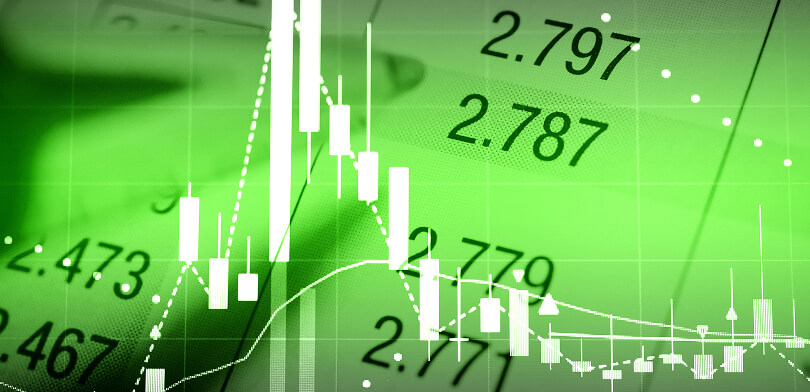Automated solutions are becoming increasingly integrated everywhere including the financial markets, where trading bots or automated trading software are now handling a range of tasks. Algo Trading is part of that nowadays used by the traders globally helping them to make their trading experience more efficient and productive.
However, the human-powered trading system is still preferred by most of the people in all various types of financial markets. Algo Trading software is not only capable of executing transactions but also proficient enough to make complex decisions in various market conditions.
It can choose the right trading strategy as per the trend in the market or sentiments of the traders with the ability to adjust its trade positions as per the changing market conditions.
However, in a volatile market, especially during sudden and unexpected swings, will Algo be able to make the right decisions?
Though humans also need time and find it difficult to make decisions in a volatile market, the question here is: who can make better decisions in such conditions?
What is Algo Trading?
Algo or Algorithmic Trading is the use of automated trading software or computer applications developed with the help of machine learning algorithms to perform various activities in stock market trading. It works on the basis of a predefined set of rules and instructions like price, volume, timing, market conditions and other technical as well as fundamental factors to trade at very high speed with accuracy.
Algo trading software or apps can place orders, and choose the right strategy with quick actions on booking the profits or exiting from the trade positions. You can also choose the predefined strategies or customize the strategy as per your risk profile and return expectations. Algo can perform a high number of transactions very efficiently minimizing the cost of transactions to improve profitability ratio.
Precision meets speed in algo trading — Get started instantly.
What is Human-based Manual Trading?
It is one of the oldest traditional trading practices followed by many people across the world since such trading activities started in the financial markets. In human-powered trading, a trader himself performs every task, from selecting the stocks to analysing the trading opportunities and market conditions. The traders perform all the order placement, and profit booking or exiting from trade positions manually.
In such a trading system, most of the decisions are taken by the traders which takes time for execution and there are also chances of human errors. But if there are certain unexpected market conditions humans can sense the market behaviour and adjust or resize their trade position. However, all the decisions are influenced by emotions, which is not visible in the Algo trading. Let’s find out how Algo Trading is different from human-based trading and in what area which one can make better decisions.
Difference Between Algo Trading and Manual Trading:
| Aspects | Algo Trading | Human Trader or Manual Trading |
| Procedure | It works on computer-based programming software where all the tasks are automated, and when activated it works itself and can perform various tasks automatically. | Humans using the computer system, from selecting the stocks, choosing the trading strategy, placing an order and booking the profits, perform everything manually. |
| Speed | It can perform millions of transactions at lightning speed. However, the level of speed also depends on the capability of a computer system to handle such tasks. | Humans can perform in a limited manner, working at high speed will not only make them tedious but also increase the chances of making mistakes. |
| Accuracy | As everything is performed by the computer system, the level of accuracy is very high, and there are almost negligible chances of mistakes unless there is a system failure or unexpected technical glitches occur. Only technical failures can affect the performance or speed of Algo. | There is a huge chance of making mistakes, especially by inexperienced traders or performing multiple or complicated tasks in a haze. The accuracy level is less compared to Algo, especially when humans have to perform multiple transactions or work at very high speed. |
| Efficiency | It is highly efficient in performing not only multiple transactions but also can execute complex tasks at very high speed while maintaining the accuracy level. | At certain levels or within a limited scope humans can perform efficiently, but in case of complex transactions or where speediness is required the efficiency becomes low. |
| Emotional Factors | As every decision is based on a predefined set of rules and instructions, hence there is no chance of emotionally biased decisions or influences by psychological factors like greed, fear or excitement. | Humans can be easily influenced by emotional factors, which can make their trade decisions biased or influenced by psychological factors like anxiety, greediness, unhappiness, enjoyment etc. |
| Adaptability | Works within certain predefined rules and instructions programmed into the algorithms, hence sometimes may fail to work properly in unexpected or highly volatile market conditions. | Humans are adaptable to adjust their activities as per the changing market conditions. Though their efficiency can be affected but can adjust their strategies or trade positions accordingly. |
| Scalability | Highly scalable in nature, as it can handle multiple tasks or manage large volumes of data without affecting the speed and efficiency in various market conditions. | Humans can work within a limited capacity and time to perform the tasks as much as they have learnt from their experiences or can handle up to certain limits. |
| Transactions Cost | The cost of deploying such sophisticated software initially could be very high, but at the time of use, it helps to reduce the cost of transactions due to high speed and efficiency. | Very low cost to hire such people, and later at the time of performing the various tasks due to limited actions, the cost of transactions could be very high compared to Algo. |
| Decision Making | All the decisions are based on the statistical data and quantitative information available in the market by interpreting as per the computer programming and algorithms to perform accordingly. | The decisions are taken on the basis of the current situation by analysing the various factors that can be influenced by human intuition and experiences in dealing with various market conditions. |
Algo or Human: Who can make better decisions in volatile markets?
The stock market, especially the derivatives market becomes highly volatile in uncertain market conditions. In such a situation choosing the strategy or trade with the right decision becomes difficult for everyone. Hence, who handles such a situation in a better way, Algo Trading software or human trader?
However, in volatile market conditions, Algo can perform multiple transactions at very high speed with accuracy, while making trade decisions could be difficult, especially in unpredictable market situations. A human can perceive every kind of situation and can make the right decision accordingly to minimize the chances of losses in trading or to maximize their profitability.
Conclusion
An Algo software can analyse the market situation within its scope, which means the training data used while developing the algorithm-based model can decide, whether the Algo is aware of such situations or not. In unaware market conditions, it can fail to perform efficiently.
While humans also make trade decisions from their past learned trading experiences, but for new and unexpected market conditions, they can make better decisions, as they can analyse and correlate the market situation with various factors. Though they can take time to decide but more capable of making well-informed decisions, especially in volatile market conditions.
















